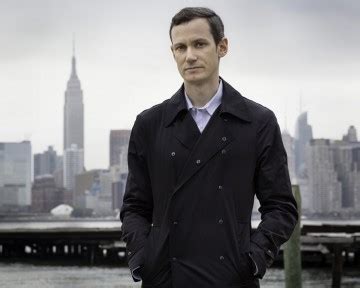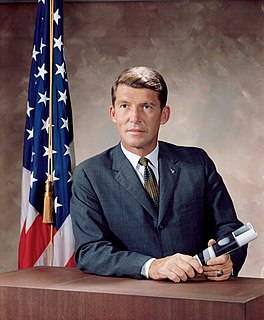A Quote by Alan Stern
Just speaking for myself, I think the return of people to the Moon has a lot to offer for understanding the formation and evolution of terrestrial worlds; so would the exploration of near-Earth asteroids by people.
Related Quotes
Everyone who's been in space would, I'm sure, welcome the opportunity for a return to the exhilarating experiences there. For me, a flight in a shuttle, though most satisfying, would be anticlimactic after my flight to the moon. Plus, if I pursued a flight myself, people would think that was the reason I am trying to generate interest in public spaceflight. And that's not the purpose - I want to generate interest in long-range space exploration.
The hazards posed by Near-Earth Asteroids are assessed by Sentry, a computer system developed by the Near-Earth Objects Group at NASA's Jet Propulsion Laboratory in Pasadena, Calif. The software factors together a cosmic rock's coordinates, distance, velocity, and gravitational influences to calculate its trajectory.
In my mind, public space travel will precede efforts toward exploration -- be it returning to the moon, going to Mars, visiting asteroids, or whatever seems appropriate. We've got millions and millions of people who want to go into space, who are willing to pay. When you figure in the payload potential of customers, everything changes.
If we return abruptly to a Miocene-like climate, it's reasonable to think that we would experience a lot of extinctions, and maybe even a mass extinction in the long term. Would the life on Earth be radically different? Of course we can't say for sure, but I think a lot of it would look familiar. Like a lot of people, I worry a lot about whether marine mammals would survive, especially whales. Ocean acidification is one of the major killers in climate change events, and that makes the ocean a very inhospitable place.
The general direction of evolution is to produce a serially imprinting, multibrained creature able to decipher its own program, create the technology to leave the planet and live in post-terrestrial mini-worlds, decode the aging sectors of the DNA code--thus assuring immortality, and act in harmony with stages of evolution to come.
I've said multiple times that the world's first trillionaire is going to be the person who exploits the resources of asteroids, the natural resources that are rare on earth and common on selected asteroids. So there are many different reasons you might want to go into space. You might want to spend your honeymoon on the far side of the moon.
The Pleiadians are very much part of our evolution right now, and I think one of the most common questions people ask, "What is in it for the Pleiadians? Why are they supporting us in this way?" The best answer is that they will benefit from our evolution, just as the whole universe will. As we evolve and come into a deeper understanding of our grandness, our sacred nature, then we become more connected into the universal community as a group, and we need to return to that whole God Consciousness state.
If the moon and earth were not retained in their orbits by their animal force or some other equivalent, the earth would mount to the moon by a fifty-fourth part of their distance, and the moon fall towards the earth through the other fifty-three parts, and they would there meet, assuming, however, that the substance of both is of the same density.
































